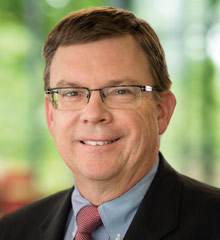Commentary on 1 Corinthians 1:3-9
It is perhaps not surprising that Paul, as he addresses the church in Corinth, speaks of the gift given, God’s grace shared, as “speech and knowledge of every kind” and wealth (i.e., being enriched in Christ Jesus).
Wealth — material and cultural — was a mark of pride for the Corinthians, a busy trade center between east and west and a cultural hub. But now, right from the outset of Paul’s letter, they become spiritual gifts, not possessions, but marks of waiting.
Christ’s testimony has been strengthened among them. We might wonder how, considering the critique Paul will shortly engage about the divisions and moral laxness found among the community of faith at Corinth. But Paul gives this assurance, echoed again in verse 9: “God is faithful.” Any strengthening of Christ’s testimony, any deepening of the gospel among the Corinthians, is due to God’s faithfulness, to the fact that they have been called by God into this communion. God is at work in the community. Paul states this clearly and very poignantly as he begins this letter of counsel and admonition.
This fellowship is Paul’s vision for the church at Corinth. It is also our vision as we begin preaching in a new liturgical year. Grace has been given to you. This grace is precisely being called into the fellowship of Christ, into this communion. This grace is never appropriated individually, just for oneself, but is always a communal appropriation, an insertion into community. Of course, this fellowship is a fellowship both in the joy and in the suffering of Christ and neighbor. But we learn about that later in the letter!
In these opening verses, Paul focuses on the grace that has been given and the gifts that express this grace. Grace and gifts, we might say, are not quite the same. The community is rooted in grace. Its very existence stems from this gracious favor in which God embraces the community. God’s good intent creates the community.
Then, in this community, the spiritual gifts are shared. They are “not lacking.” They are not yet perfect or complete but they are present and called to increase day by day. Of course many things battle against these spiritual gifts in the community, especially the tendency towards self-sufficiency, complacency, smugness; or even cultured speech and brilliant knowledge. All those things that turn a community in upon itself diminish these spiritual gifts.
The work of the spiritual gifts is begun in us, through this fellowship in Christ and with one another. As a work “begun,” these spiritual gifts implicate us in a waiting, a waiting for Christ to be revealed. Of course, we could interpret this waiting to mean waiting for the heaven to be torn open, for the sun to be darkened, for the mountains to quake and the stars to fall. But the waiting may be even more surprising than these too easily anticipated and naturally expected happenings.
The entire letter is focused on building the community into the testimony it has already received, strengthening the Gospel witness in its midst. The revelation of Jesus Christ that we are all waiting for in the Advent season, that we lift up and name as characteristic of Christian living in every season, is an unexpected revelation. It is not waiting for another birth in a manger and not necessarily waiting for a second coming into time.
This waiting may be characterized by patient waiting in the present time for Christ’s revelation as fellowship, as the communion of saints. In other words, the waiting is perhaps the praying and thanksgiving, the singing and the sharing that transforms our speech and knowledge, our words and expectations, into conformity with Jesus. The community of faith itself, the one we find ourselves in, is called to see Christ coming, Christ “adventing” in its very midst, in its very heart.
The community of faith as Christ-rooted, the call into this fellowship, the strengthening of the testimony, the spiritual gifts — these all parallel the fig tree in Mark’s Gospel for this first Sunday of Advent. As we watch the fig tree, as we see its ripening fruit, we can already taste the sweetness of summer and the rich fruit. So these gifts in the community of faith increase and give us a foretaste, more than a foretaste; they reveal to us the richness of Christ. This coming that we await is not a fearful coming. It is not a coming in vengeance and wrath but a sweet and tender coming that is already being nurtured in the community as it gathers around the font to hear forgiveness, around the book to hear of God’s mercy and at the table to taste that mercy and faithfulness.
Paul’s plea to the Corinthians in these verses (and throughout the letter) echoes the cry for restoration in Psalm 80. Lord, let your face shine. In community, as people brought together through God’s grace, gifted with many spiritual gifts, we wait for God’s face to shine, to be revealed in ever deeper and brighter layers within the community itself. This waiting is not passive. Speech and knowledge are transfigured. The way a community and its members relate and communicate reflects their rootedness in grace. The fellowship in Christ forms their speech and knowledge. They are shaped as a community in their waiting, a waiting that is itself the work of the Spirit.
Paul invites the community, from these very opening lines, into a vision of waiting, into a vision of actively waiting for Christ to shape them into a merciful fellowship. This community continually remembers God in their ways. Or, to draw on Isaiah’s metaphor from the first reading, the community is like clay that the potter takes and molds so that it may be blameless on the day of the Lord. That is God doing, God’s calling, not ours.

November 27, 2011